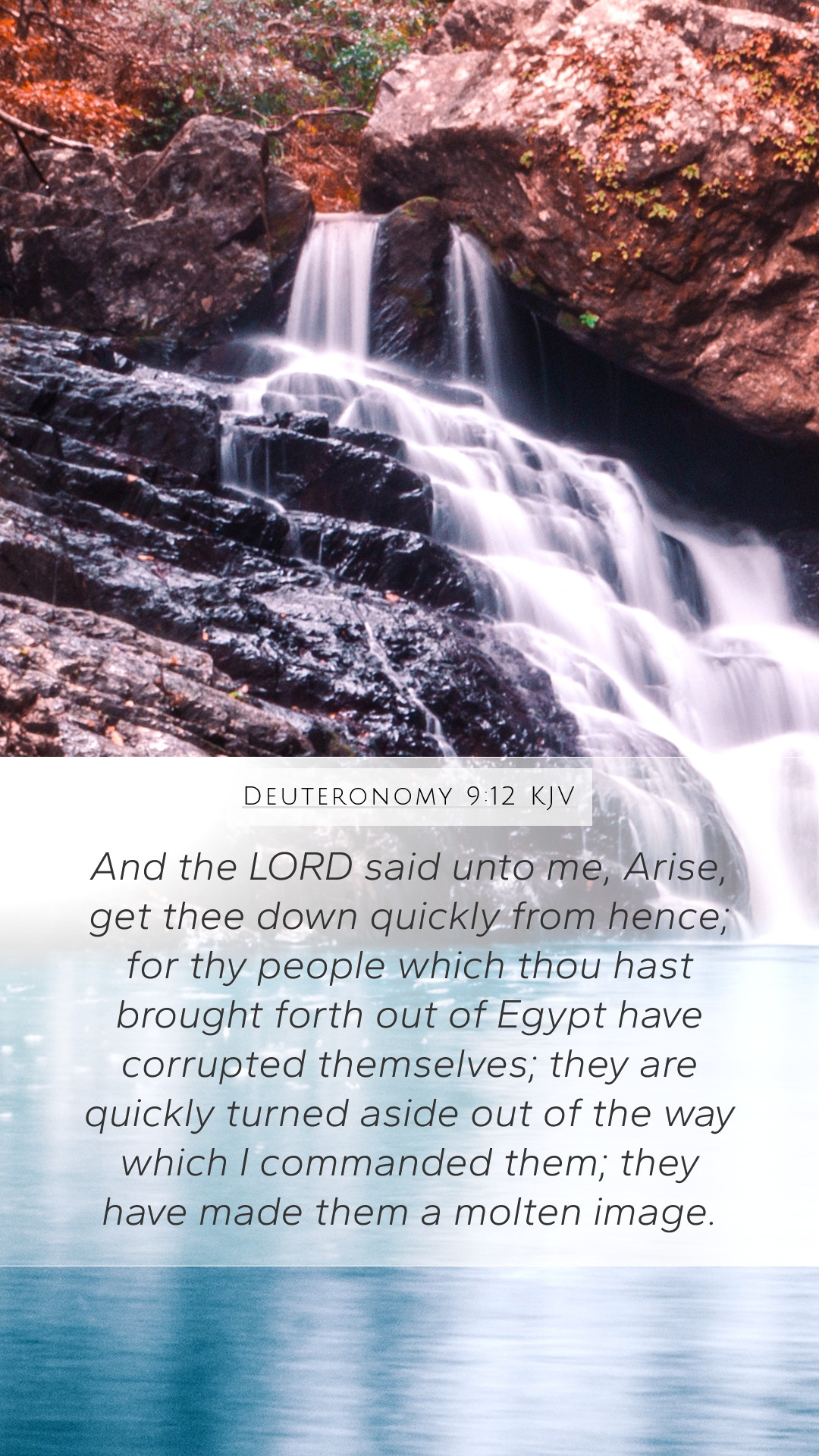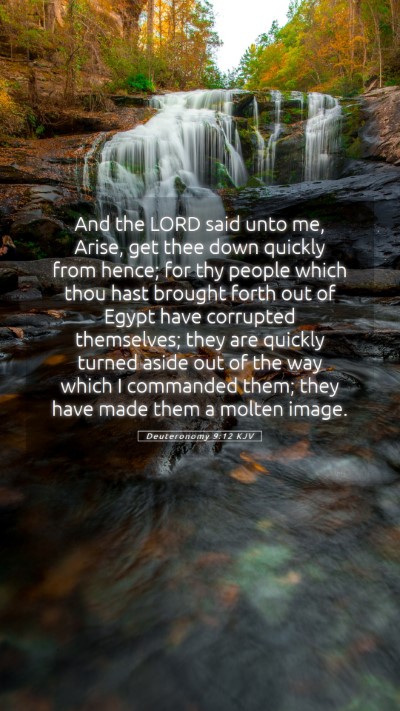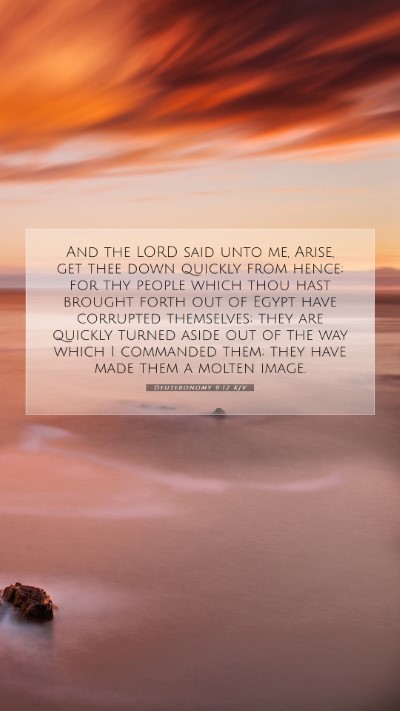Deuteronomy 9:12 - Bible Verse Meaning and Commentary
Deuteronomy 9:12 states:
"Then the LORD said to me, 'Arise, go down quickly from here, for your people whom you brought out of Egypt have corrupted themselves; they have quickly turned aside from the way which I commanded them; they have made themselves a molded image.'" (Deuteronomy 9:12, NKJV)
This verse highlights a significant moment in the biblical narrative where Moses receives urgent instruction from God about the disobedience of the Israelites. Here, we delve into the meaning of this verse through insights gleaned from various public domain commentaries.
Contextual Analysis
This passage occurs as Moses reflects on the Israelites' journey from Egypt and their rebellion. It serves as a critical reminder of human frailty in the face of divine instruction.
- Moses’ Role: Moses is portrayed as a mediator between God and the Israelites, reaffirming the weight of his leadership during this period.
- The Israelites’ Disobedience: The verse emphasizes the quickness with which people can turn from God, a theme found throughout Scripture that illustrates the struggle against idolatry.
- Divine Anger: God's anger toward the Israelites becomes central to understanding the consequences of sin and the need for repentance.
Insights from Matthew Henry
Matthew Henry, in his commentary, emphasizes the following aspects:
- Corruption of the Heart: He reflects on the nature of human corruption and how quickly Israel lapses into idolatry, drawing attention to the susceptibility of the human heart to stray from divine guidance.
- God’s Command and Human Response: Henry discusses the gravity of God's command and the expectation for obedience, illustrating the contrast between divine instruction and human failure.
Albert Barnes' Commentary
Albert Barnes adds valuable perspectives:
- Urgency in God's Warning: Barnes notes the urgent tone of God’s message to Moses, underscoring the immediate threats posed by the people's actions.
- Idolatry’s Consequences: He highlights that the making of the molded image signifies a severe break in covenant relationship.
Insights from Adam Clarke
Adam Clarke offers additional interpretations:
- Reflection on History: Clarke points out that this moment reflects Israel's historical tendency to drift away from monotheism towards idolatry, a recurrent theme in biblical narratives.
- God’s Patience and Justice: He suggests that the passage illustrates God’s balance of patience with justice, warning His people before enacting judgment.
Theological Implications
This specific verse carries profound theological implications, particularly regarding:
- Human Frailty: It reveals the ease with which humans can fall into sin.
- The Nature of Idolatry: It serves as a warning against creating 'molded images' in our lives, which can manifest in various forms today.
Application for Today’s Believers
For modern believers, understanding Deuteronomy 9:12 provides a framework for applying biblical teachings to daily life:
- Self-Examination: Reflecting on one’s own life to identify areas where idolatry may have crept in.
- Commitment to God’s Ways: Reinforcing the importance of remaining steadfast in faith and adhering to God’s commands.
Related Scripture References
- Exodus 32:1-6: Describes the making of the golden calf.
- Psalm 106:19-21: Reflects on Israel's history of idolatry.
- Isaiah 40:28: Reassures believers of God’s eternal strength against human weakness.
Conclusion
Deuteronomy 9:12 serves as a pivotal reminder for all Christians regarding the consequences of straying from God's commands and the importance of vigilance in our spiritual journeys. The combined insights from various public domain commentators help enrich our Bible verse understanding and inspire a deeper commitment to avoiding the pitfalls of idolatry in today's world.


